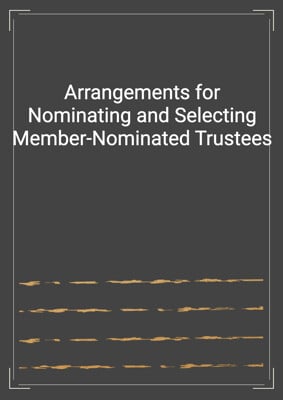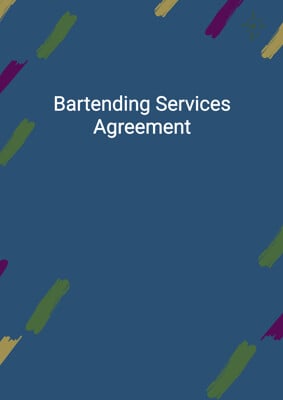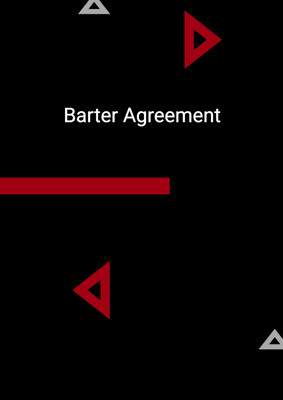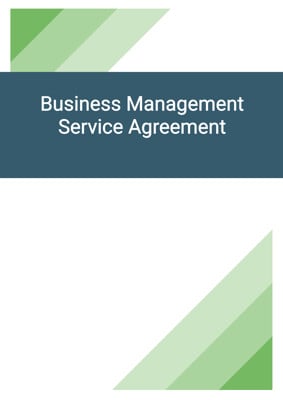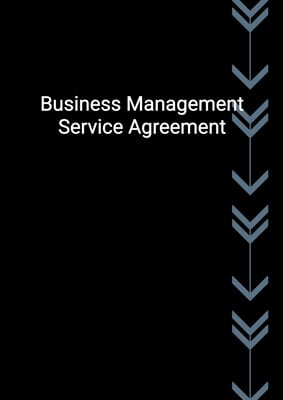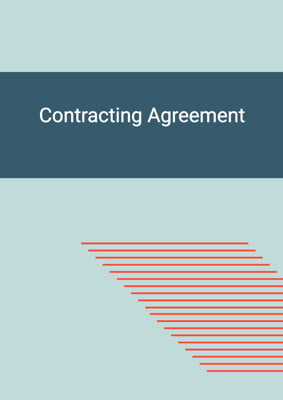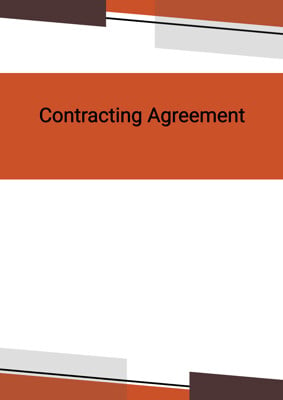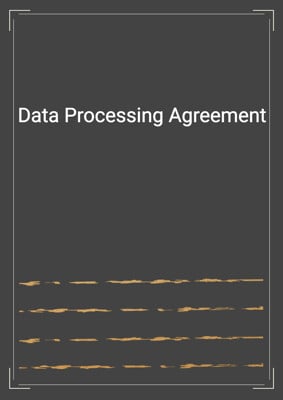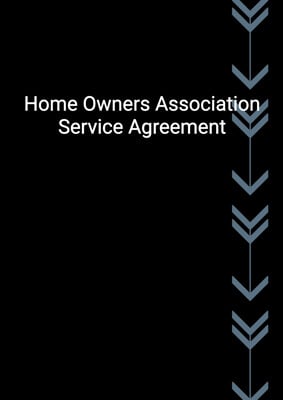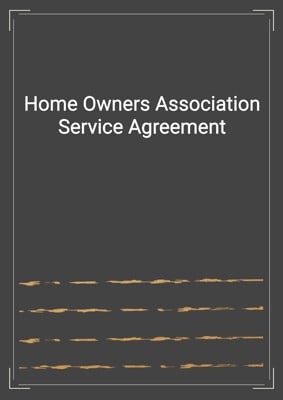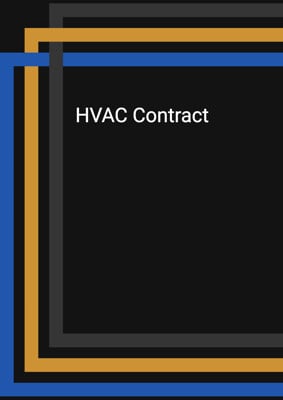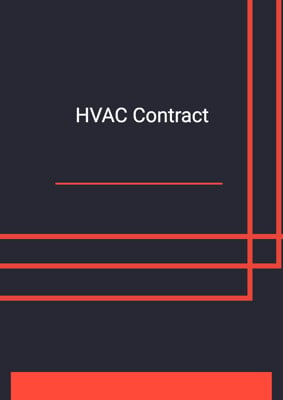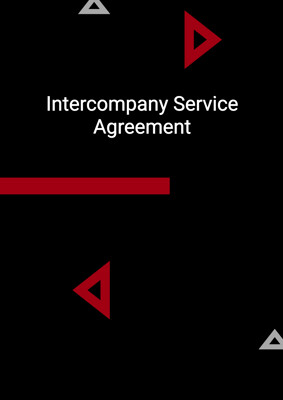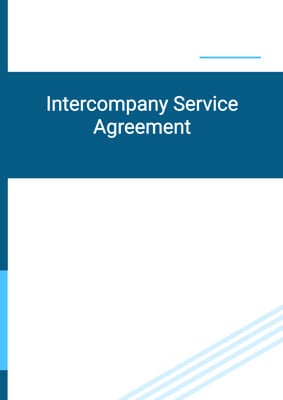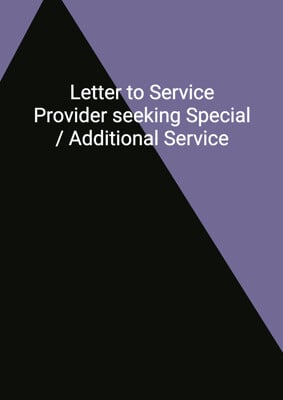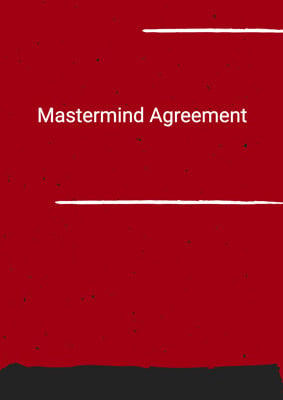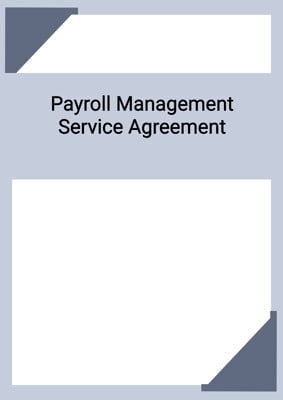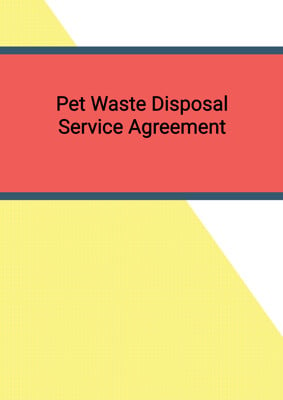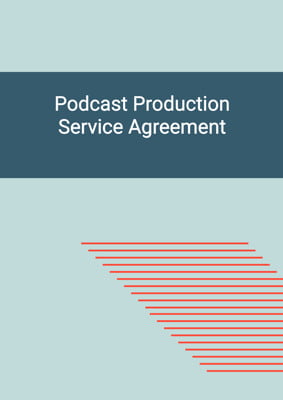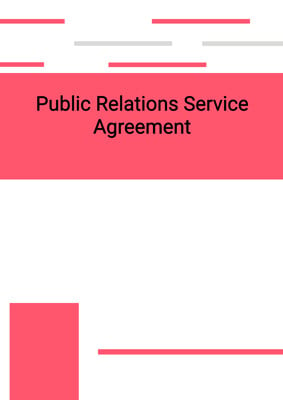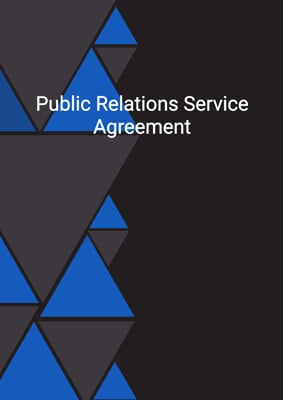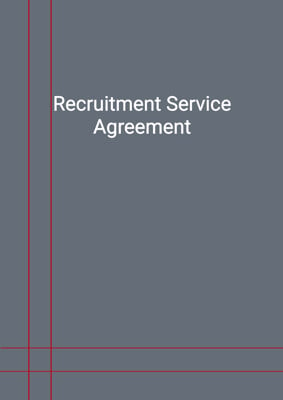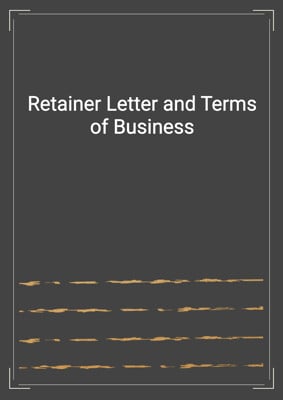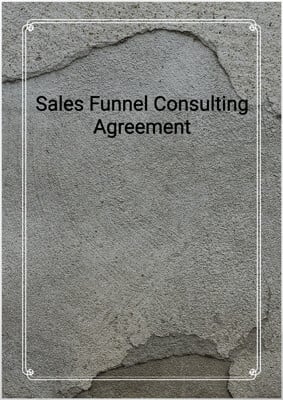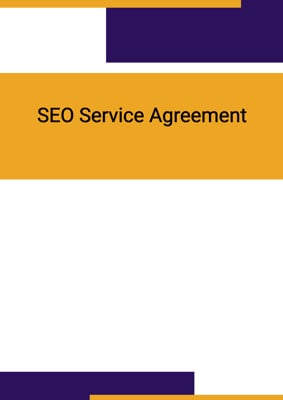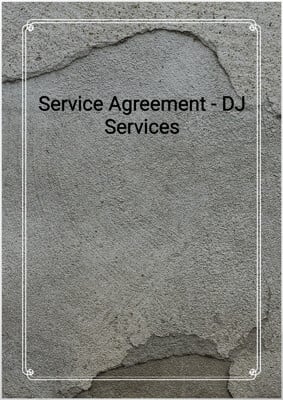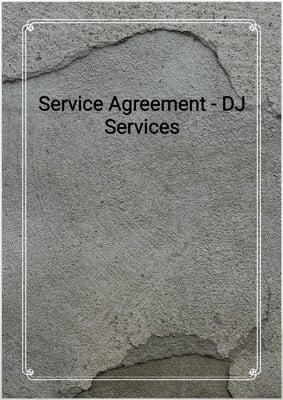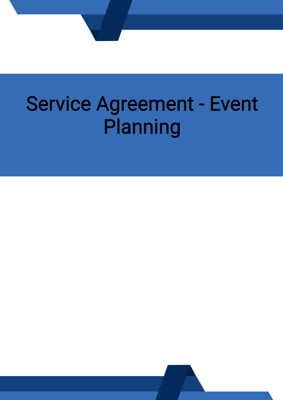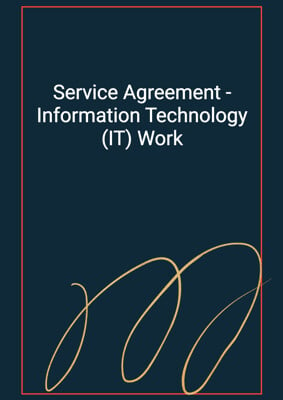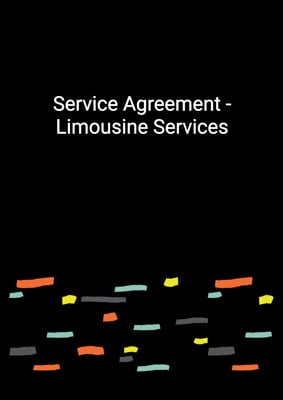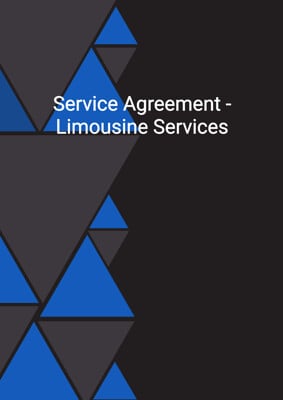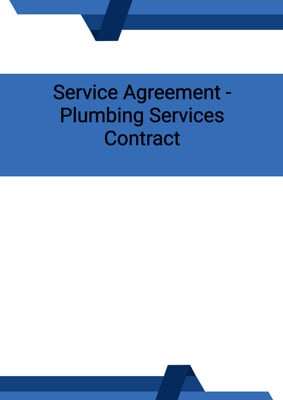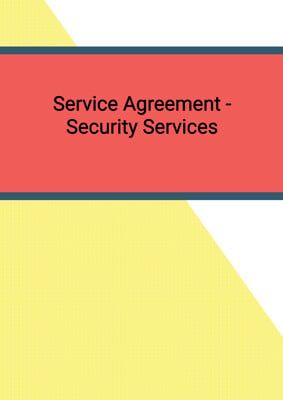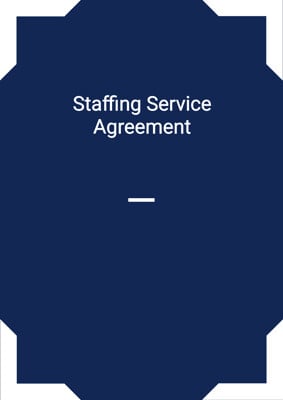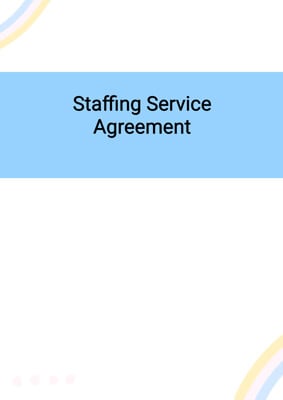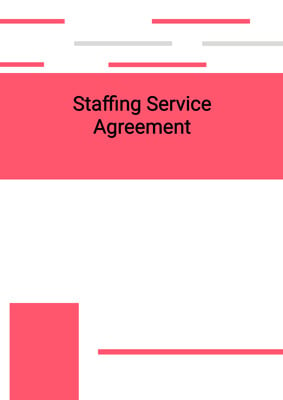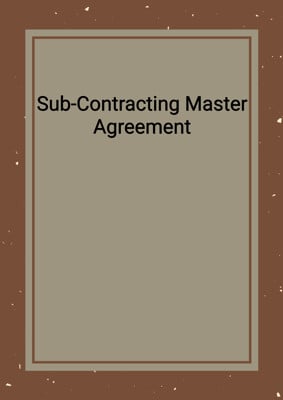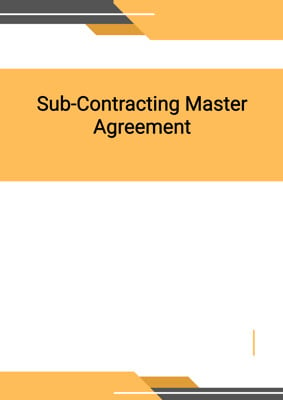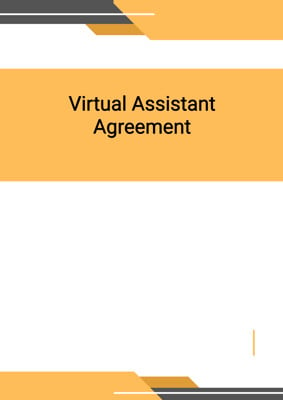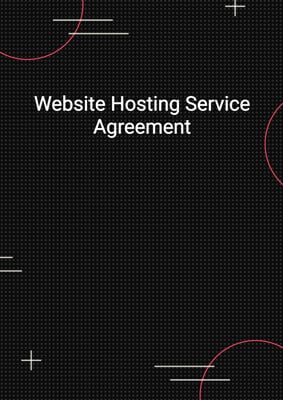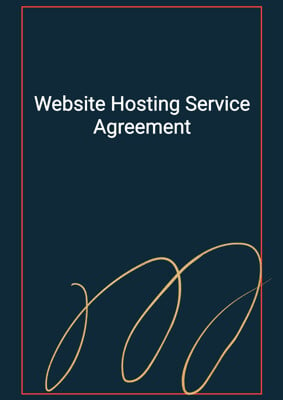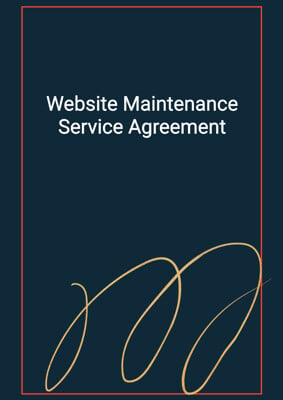
Service Agreement - Event Planning
Servicer (Event Planner)
This document can be used as an event planning contract template. It is a Service Agreement suitable for event planning services. Under this agreement, a Servicer is to provide event planning services to a Customer for an Agreed Price. This agreement is drafted in favour of the Servicer (event planner).
How to Tailor the Document for Your Need?
01
Create Document
Fill in the details of the parties. You can click the "Fill with Member’s Information" button to complete it with information saved to your account.
02
Fill Information
Please fill in any additional information by following the step-by-step guide on the left hand side of the preview document and click the "Next" button.
03
Get Document
When you are done, click the "Get Document" button and you can download the document in Word or PDF format.
04
Review Document
Please get all parties to review the document carefully and make any final modifications to ensure that the details are correct before signing the document.
Document Preview
Document Description
The Service Agreement - Event Planning is a document that outlines the terms and conditions between the servicer and the customer for event planning services. This agreement is important as it establishes the rights and obligations of both parties and ensures that the services provided meet the expectations of the customer.
The entire document is divided into several sections, each addressing specific aspects of the agreement. The first section, titled 'Interpretation', provides definitions for key terms used throughout the agreement. This ensures clarity and avoids any misunderstandings between the parties.
The second section, 'Servicer's Obligations', outlines the responsibilities of the servicer in providing the event planning services. It includes provisions for the timely and professional performance of the services, compliance with laws and regulations, and the requirement for written approval for any additional services outside the scope defined in the agreement.
The third section, 'Pre-Event Consultation', emphasizes the importance of a consultation between the parties before the event. This consultation allows the customer to communicate their preferences and budgetary guidelines to the servicer, ensuring that the services provided align with the customer's expectations.
The fourth section, 'Completion of the Work', highlights the importance of timely completion of the services. It includes provisions for the completion date and the possibility of granting an extension if there are valid reasons for delay.
The fifth section, 'Service Fees', addresses the payment terms for the services. It specifies the service fee, payment schedule, invoicing process, and consequences of late payment. It also covers the reimbursement of expenses incurred by the servicer and the resolution of any disputes related to the invoices.
The sixth section, 'Permits', states that the servicer is responsible for obtaining all necessary licenses and permits for providing the services. It also acknowledges that the servicer must comply with the rules imposed by the location of the event.
The seventh section, 'Cancellation', outlines the conditions for canceling the agreement and the associated fees. It includes provisions for cancellation by either party and the refund of monies paid in certain circumstances.
The eighth section, 'Background Check', assures the customer that the servicer's employees have undergone a comprehensive background check and have no criminal history or listing on any sex-offender registry.
The ninth section, 'Release', grants the servicer the right to use photographs of the customer or the event for commercial purposes without compensation.
The tenth section, 'Licenses and Insurance', requires the servicer to obtain the necessary licenses and maintain appropriate insurance coverage for liability arising from the services.
The eleventh section, 'Warranties and Indemnities', establishes the customer's obligation to report any defects in the services and the servicer's responsibility to rectify any reported defects. It also limits the liability of the servicer and includes provisions for indemnification by the customer.
The twelfth section, 'Term and Termination', specifies the duration of the agreement and the conditions for termination by either party. It also addresses the consequences of termination, including the payment of outstanding balances.
The thirteenth section, 'Ownership of Materials', addresses the intellectual property rights of the deliverables and services provided. It grants the customer a license to use the deliverables and terminates the license upon termination of the agreement.
The fourteenth section, 'Confidential Information', imposes obligations on the customer to keep the terms of the agreement and any confidential information disclosed by the servicer confidential. It includes exceptions for information that becomes public, is disclosed by a third party, or is required to be disclosed by law.
The fifteenth section, 'Announcements/Publicity', requires the parties to obtain approval from each other before making any announcements or disclosures related to the agreement.
The sixteenth section, 'Amendment', states that any changes to the agreement must be in writing and signed by the parties. It clarifies that variations do not constitute a waiver of any provisions and do not affect rights and obligations already accrued.
The seventeenth section, 'Assignment', prohibits the customer from assigning the agreement or subcontracting the performance without the servicer's written consent.
The eighteenth section, 'Severability', addresses the invalidity or unenforceability of any provision in the agreement and requires the parties to negotiate a valid substitute provision if necessary.
The nineteenth section, 'Further Assurance', obligates the parties to perform any acts or execute any documents necessary to implement and give effect to the agreement.
The twentieth section, 'Warranty of Capacity and Power', includes representations and warranties by each party regarding their authority and capacity to enter into and perform the obligations under the agreement.
The twenty-first section, 'Force Majeure', exempts the parties from liability for failure or delay in performing their obligations due to causes beyond their reasonable control.
The twenty-second section, 'No Rights under Contracts for Third Parties', clarifies that third parties have no right to enforce any terms of the agreement.
The twenty-third section, 'Arbitration and Proper Law', encourages the parties to resolve any disputes amicably and in good faith. It does not specify a particular jurisdiction for arbitration.
The twenty-fourth section, 'Notices and Service', specifies the methods and deemed times of giving notice between the parties. It includes the addresses and contact information of each party.
The twenty-fifth section, 'Counterparts', allows the agreement to be executed in multiple counterparts, with each counterpart considered an original but together constituting one instrument.
This detailed description provides a comprehensive overview of the Service Agreement - Event Planning, highlighting its importance and the specific provisions included in each section.
How to use this document?
To use the Service Agreement - Event Planning effectively, follow these steps:
1. Provide information: Enter the names and principal places of business of both the servicer and the customer in the agreement. This ensures clear identification of the parties involved.
2. Discuss event details: Engage in a pre-event consultation to discuss the specific services the customer requires for their event. This includes determining the services to be provided, budgetary guidelines, and any personal preferences.
3. Specify completion date: Agree on a completion date for the services. If necessary, discuss the possibility of granting an extension if there are valid reasons for delay.
4. Determine service fees: Establish the service fee payable by the customer for the services provided. Ensure that both parties understand the payment schedule and any additional expenses that may be incurred.
5. Obtain necessary permits: The servicer should obtain all required licenses, permits, and permissions to provide the services. Compliance with the rules of the event location is essential.
6. Understand cancellation terms: Familiarize yourself with the cancellation policy outlined in the agreement. Ensure that both parties are aware of the notice period and any associated cancellation fees.
7. Conduct background checks: Confirm that the servicer's employees have undergone comprehensive background checks and have no criminal history or listing on any sex-offender registry.
8. Grant release for photographs: Understand that the servicer has the right to use event photographs for commercial purposes without compensation. Consider any personal preferences regarding the use of images.
9. Maintain necessary licenses and insurance: Ensure that the servicer has the required licenses and appropriate insurance coverage for liability arising from the services.
10. Report defects and seek rectification: Promptly report any defects in the services to the servicer. The servicer should make reasonable efforts to rectify any reported defects.
11. Understand termination conditions: Be aware of the conditions for termination of the agreement by either party. Understand the consequences of termination, including the payment of outstanding balances.
12. Respect intellectual property rights: Recognize that the servicer retains intellectual property rights in the deliverables and services provided. Understand the limitations on the use of these materials upon termination of the agreement.
13. Maintain confidentiality: Keep the terms of the agreement and any confidential information disclosed by the servicer confidential. Only disclose information as permitted by the agreement or required by law.
14. Seek approval for announcements: Obtain written approval from the other party before making any announcements or disclosures related to the agreement.
15. Comply with notice requirements: Ensure that any notices required under the agreement are given in the specified manner and within the designated timeframes.
By following these steps, you can effectively use the Service Agreement - Event Planning and ensure a smooth and mutually beneficial relationship between the servicer and the customer.
Not the right document?
Don’t worry, we have thousands of documents for you to choose from:

